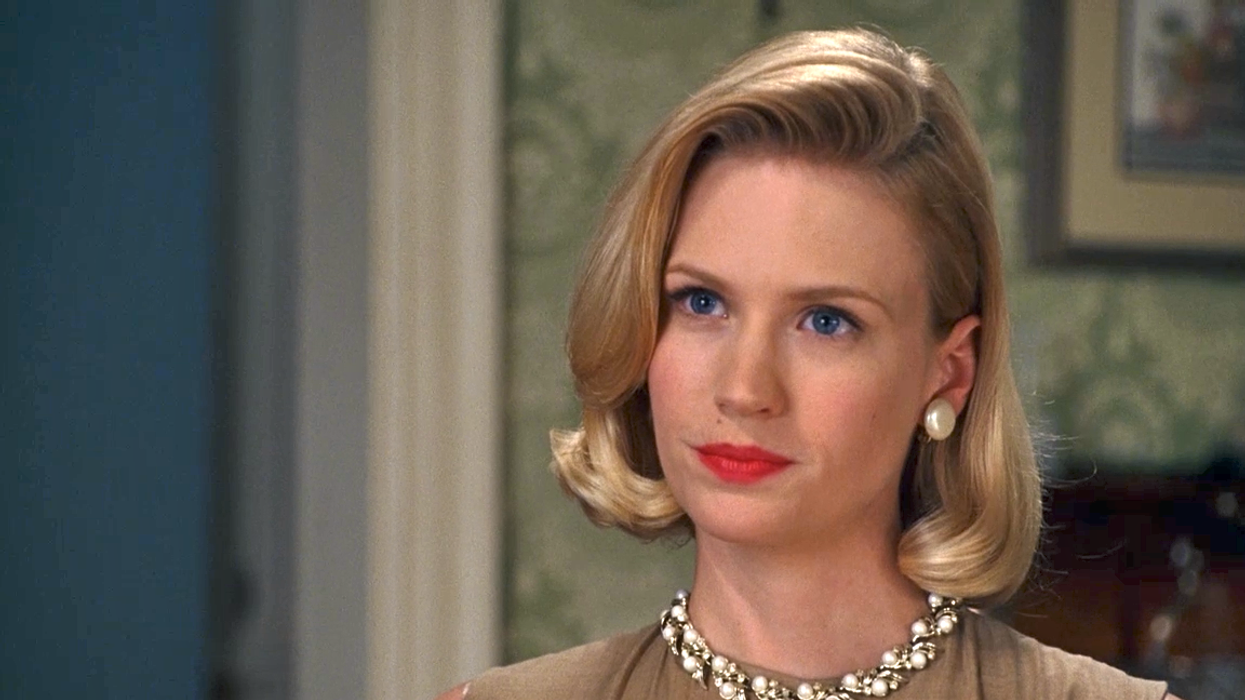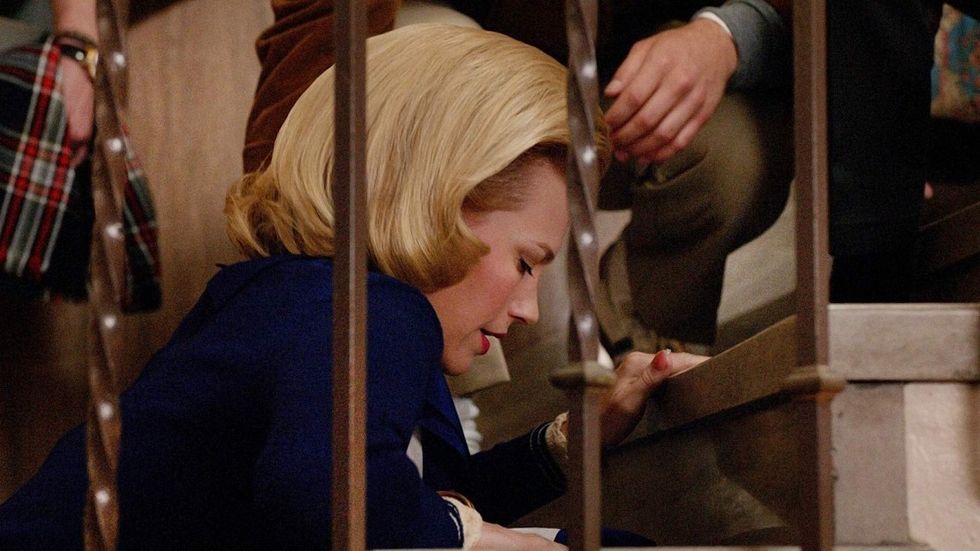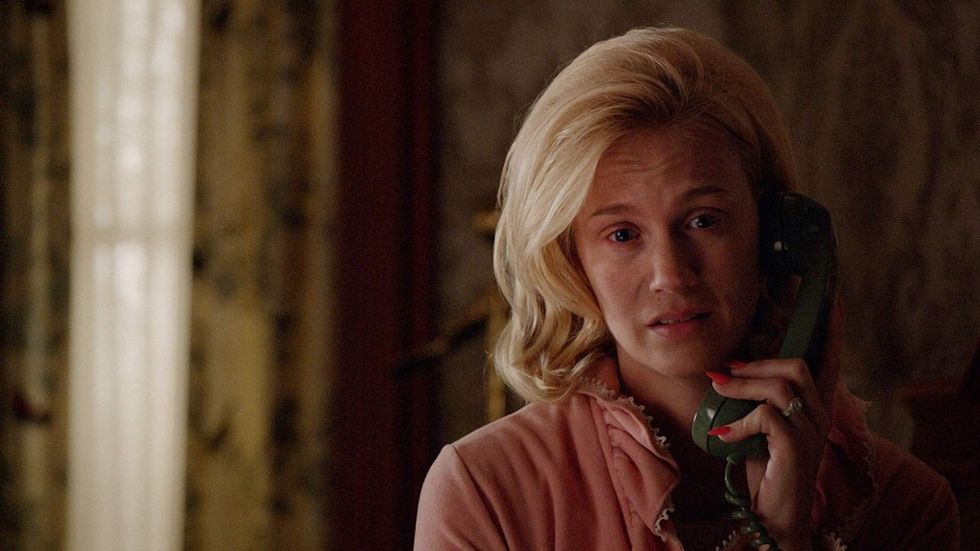Why Mad Men’s Betty Draper is the Perfect Example of a Tragic Character
Take a look at how AMC’s iconic TV show "Mad Men" approaches the tragic arc of one of its primary players, Betty Draper, and how you can apply it to your work.

[WARNING: Spoilers ahead for Mad Men and Game of Thrones]
You’ve followed No Film School’s guide to character development. You’ve checked out the Captivating Characters infographic. You’re ready to sit down and create a character out of thin air. Only thing is, you want to break the mold—no happy endings for this guy or gal. Congratulations! You’re writing a tragic character.
But what is a tragic character?
This video from The Take takes a deep dive into what it takes to write a tragic character through a character study of Mad Men's Betty Draper, played by January Jones. Check it out below:
Let’s take a look at what we can learn from this video:
What is a Tragic Character?
A tragic character is more than just someone who doesn’t get to live happily ever after. The ancient Greeks believed that a tragic character should possess flaws that lead to his or her own downfall. Aristotle wrote that a tragic character should also be powerful, be flawed, and be subjected to suffering or terrible luck.
You haven’t seen Mad Men? How about Game of Thrones? Jaime Lannister is a great example of a tragic character. He starts off as a powerful noble from an esteemed family—then has his hand cut off, grows to hate his sister, and ultimately succumbs to his “hateful” side as he rushes back to King’s Landing to be with her during her final minutes. It’s a tragic arc because he can’t escape his own nature, and it leads to his death.

Betty’s Beauty: Her Power
Betty Draper is beautiful, and more importantly, she knows it and loves it. She was raised to believe that a beautiful woman is “earning her keep.” But she also realizes that her beauty gives her a certain power over men, and in an era where women were largely powerless, that’s something she takes great pride in.
However, as she’s grown up, something inside Betty has started asking questions. She has her beauty, her family, and her status in society—so why isn’t she happy? It’s a question she doesn’t even know to ask until the later seasons of the show.
If you’re writing a tragic character, they should start with some kind of power or status, so they have somewhere to go when they start their fall from grace.

Misery Loves Company
As the video notes, Betty often acts like a child because she essentially missed growing up. Betty’s flaw isn’t that she’s a child, it’s that she’s prideful. The rest of her issues stem from that.
Betty is often unhappy. Sometime’s a legitimate grievance, like when Don cheats on her with other women. Other times, it’s because she feels out of place. Her pride in her appearance means less and less as other female characters find their way in a changing world.
When you’re writing a tragic character, make sure that you focus on your hero or heroine’s flaws just as much as their strengths. Nobody’s perfect, and it might give the audience something to empathize with.

Adapt or Die
As Matt Weiner explains, Betty had to die. Her death is symbolic of the end of the era. Although her beauty and pride served her well while she was growing up, it didn’t matter as much when she was a child. Her inability to change caused her to lose step with the other women in the world, and as they moved forward, she was left behind.
You can do the same type of thing when writing your screenplay. (No, don’t kill every character who doesn’t arc.) When you have a character who refuses to change, you have two choices: either force them to confront their inner obstacle or have them suffer a tragic end.

Wrapping Up
Betty Draper is an incredible example of a tragic character: a woman who thought she had everything she ever wanted but learned too late that she could be more than a housewife. If you’re writing tragic characters into your screenplay, pay close attention to your characters’ flaws, and you’ll give them their own unique downward arc in no time.
Looking for more info on classical screenwriting and storytelling techniques? Check out our article on Joseph Campbell’s Monomyth!
Source: The Take














